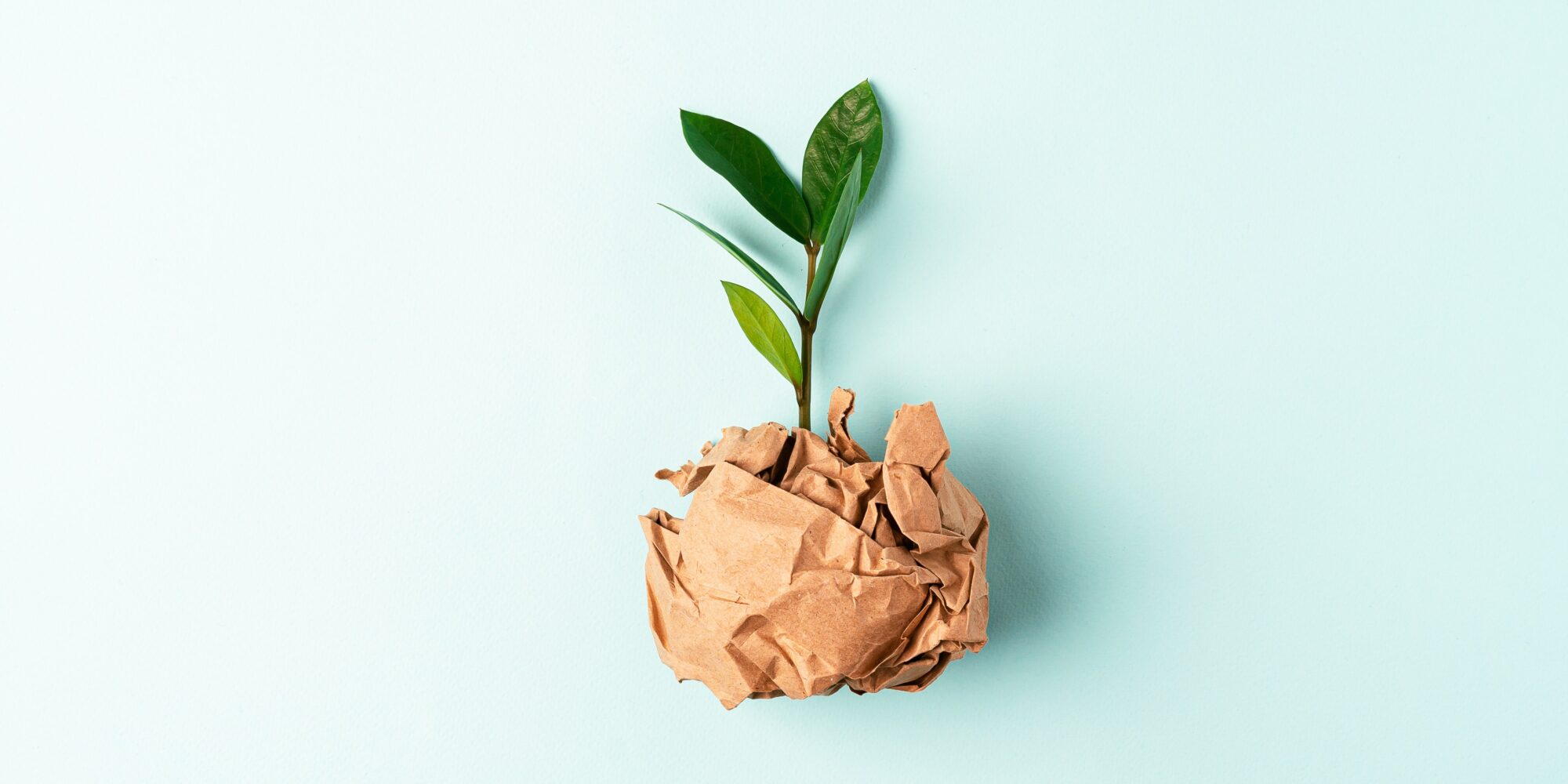
Steps Beauty Brands Are Taking To Become More Sustainable
In this edition of Beauty Independent’s ongoing series posing questions to beauty entrepreneurs, we ask 29 brand founders and executives: What initiatives are you taking to make your company more sustainable? Is there anything you’ve wanted to do, but haven’t because it’s too challenging or expensive?
- Bee Joy España Co-Founder, Simple Alchemy Co.
We make sure every product is biodegradable, and every bit of packaging is backyard compostable or recyclable. There are, of course, so many things we want to do, but can't do yet. Eventually, we want to own land with a self-sustaining facility to run our business out of. We also want to partner with manufacturers to make custom compostable packaging, and the list goes on.
- Zahir Doss Co-Founder and CEO, Function of Beauty
In the last year or so, we've offered a number of things: optional pumps, removed shrink wrap in packaging and, now, only use 100% recycled kraft packaging. By the end of 2020, all shampoo, conditioner and leave-in treatment bottles will be 100% post-consumer recycled (PCR) materials. It’s a topic I’m personally passionate about. I have a PhD in sustainability and received a postdoctoral fellowship at the Center for Sustainability at the IMD Business School in Switzerland.
- Anne Cheatham Co-Founder and CFO, Nuele
Not only is our final product and packaging made from sustainable materials, we are working hard to infuse sustainability across our supply chain through ingredient sourcing. Currently, we are working with farmers in Morocco and Ghana, and plan on expanding to Kenya and Benin in order to support sustainable agriculture and economic growth for farmers in these countries.
- Allison Grossman Co-Founder, The Seaweed Bath Co.
While we use 100% post-consumer recycled plastic bottles across our product lines, we are always researching new sustainable packaging options. The challenge is that we do not want our packaging choices to negatively affect the approachable pricing on our products that our customers have come to expect.
- Dean Neiger Co-Founder and VP of Business Development, Sky Organics
Being sustainable is an ongoing journey and something we strive hard at every day. We launched a Green & Growing initiative for the entirety of Earth Month in which we focused on how small everyday changes like switching off electronics when you’re not using them and using multipurpose beauty essentials can help build a greener future.
Aside from campaigns, we make sure to source our ingredients in small batches from local farms, bottle most of our essentials right here in the United States, and we are working on updating our packaging to more eco-friendly materials like glass.
We’d love to transition all of our products to be 100% recyclable, but it's a costly process. So, it becomes a tradeoff in which we have to choose whether to offer organic essentials to only a small, select group of people that can afford the price increase or we use less costly options and provide green essentials to a greater community. For now, we are continuing to do all we can to lower our own impact and making sure to guide our beauty community in being kinder to the planet with us.
- Charlene Valledor President, SOS Beauty
As a company, we have a vested interest in helping our clients make informed choices about packaging, printing and their carbon footprint. The small changes we make now to be more efficient and sustainable in production, shipping, and leaning away from virgin plastics, harmful decorative practices and wasteful packaging not only makes sense from a social responsibility standpoint, but from an economic standpoint as well.
We know that the customer is going to continue to demand more and more transparency in the supply chain and will support the brands that are making the right choices. We still have a long way to go in terms of our ability to use PCR (post-consumer recycled) at the moment,because the market is still relatively small, and it’s more expensive to use than virgin plastic, but we push for it because we know it’s the right thing to do. The more we support recycling and PCR use as industry, the faster the plastics market will meet us, and the faster it will become the norm.
- David Bronkie Co-Founder, Siblings
While we strive to provide more sustainable options for our products and reduce emissions where possible, we're still producing a carbon footprint that harms the planet. We offset our carbon footprint from end to end (production through shipping) with the help of Pachama and verified reforestation projects.
The decision to offset our carbon is our acknowledgment that we're not perfect. We can improve in all aspects to reduce our emissions, but we're not allowing those emissions to go untraced and unaccounted for. Offsetting our carbon is the daily reminder needed to keep making progress toward a more sustainable future with limited carbon emissions. We hope larger brands will continue to follow suit sooner than later. We look at being a carbon-neutral company as table stakes in this day and age, not a means to drive revenue, so we do not consider any sales impact from being carbon-neutral.
- Rebecca Percasky Co-Founder, The Better Packaging Co.
Our entire business is built on principles of sustainability. However, there are always things we can do better. We recently did a full audit of our carbon footprint in order to offset it and become climate-positive, which means we offset 120% of our emissions from operations, and that highlighted to us the importance of sea-freighting all product whenever possible. Sea freight is also a lot cheaper!
We take product stewardship very seriously and are developing a take-back scheme via a network of collection points for compostable packaging. This will incur some cost, but, to us, it’s just the cost of doing business responsibly. We are also constantly working to improve our products, reduce any waste generated in their production, make the inputs more sustainable and renewable, and make them able to be reused many, many times. This is who we are. We are also working hard to make our products even more affordable to businesses of all sizes so that cost is not a barrier to being more sustainable.
- Andrew Glass CEO and Founder, Non Gender Specific
From the very beginning, one of our brand's goals was to reduce consumer waste. At the time of our launch, our answer to that was creating multi-correctional formulas that would decrease the number of products needed to get great skin as well as using recycled paper for our boxes. As we've grown over the last two years, we've been able to increase our sustainability efforts by launching plantable seed-paper boxes as well as utilizing wind-powered manufacturing plants.
We've also begun donating to OneTreePlanted. which focuses on planting trees in areas of devastation such as Australia to help replenish the environment. We're extremely proud of our sustainability efforts, but there is always room for improvement. We're currently working with a few innovative companies in Europe that are creating technologies to bring sustainable consumer products/packaging to the next level and figuring out ways to incorporate these innovations into our company.
- Patrick Kelly Founder and Perfumer, Sigil
There is a constant, healthy friction between quality and sustainability in terms of packaging and formulary processes. You truly can have both, though the innovation can definitely sting at times. We are constantly pushing our packaging manufacturers to find better and more innovative ways to produce high-sensory, luxury packaging touches without the use of customary foam and plastic.
The learning curve is steep, and the last thing we would want is to sacrifice on strength of closures, trays or other parts. Our best approach is saying no to what we firmly believe is at odds with our ethos, and continually rapid prototyping improvements to our parts and formulas from there. It’s an ongoing journey without a finish line.
- Stan Ades Founder, Pacific Shaving Co.
We are consistently striving for solutions to support sustainability. In the beginning, we made a conscious decision to manufacture domestically. We also supported buying our components from domestic manufacturers. With that said, our packaging is minimal—we try to limit any secondary packaging—and the components are recyclable. Our wish is to use even more sustainable packaging, but we need to get creative in the how-to as there are some roadblocks. Sometimes, you have the vision, but the costs are too high for the customer. Other times, the manufacturing capabilities aren’t found domestically, so you need to outsource it.
- Mona Maine de Biran CEO and Co-Founder, KIERIN NYC
We are doing split runs on our production to minimize the use of cellowrap. Some retailers still require cellowrap for the protection of the products in-store and transit. We still have to service their needs, but, for ourselves, we’ve made the switch and no longer cellowrap our products in an effort to further minimize our use of plastics.
I am interested in glass bottles that are recycled glass in addition to being recyclable glass. Unfortunately, I have not found an economically feasible solution yet. I am also interested in becoming a certified B Corp., but certifying our clean and conscious policies with this organization also requires a hefty ongoing investment of resources. Obtaining some certifications can be just too challenging from an administrative perspective or expensive for small businesses to support even when it is not a question of whether or not the company qualifies.
- Sharon Pak Co-Founder, Insert Name Here
Sustainability is an important conversation we want to be involved in with the shift to e-comm. We are taking a couple of initiatives on our end to lessen our footprint. For instance, we just phased into a new cardboard shipper from a plastic bubble mailer. We additionally have a condensed new baggie coming down the pipeline that can be reused as storage. The most challenging aspect of becoming a more sustainable brand is maintaining good branding. So far, we have received such great feedback from our community.
- Blair Armstrong Founder, Gilded
Some of our current initiatives include refining the design of our refillable candle, making it a zero-waste product, and developing new and improved body skincare tools and devices that are not only aesthetically pleasing, but also designed for multiple and repeat use. We are also working to phase out all non-recyclable materials and incorporating refill packs for our skincare products along with a subscription model for reorders. We are taking a long-term, transitional approach to ensure that these and other changes are not too challenging or expensive for us.
- Dillon Peña Creator, Leland Francis
Last year, I made a promise to myself that I would try to not use plastic in future launch packaging, and I would search for solutions to my current use of plastics. That meant having aluminum lids made for two new launches and forgoing a pump. I will be changing two current items of packaging in the near future. This initiative of trying to eliminate the use of plastics also meant spending more money on samples to be filled in glass jars with aluminum lids versus less expensive pouches that are not usually recyclable. I wish there was an option for a pump that didn’t require the use of plastic.
- Kát Rudu Founder and CEO, Kát Rudu Beauty
I am taking the initiative with the clean ingredients in my products that I make with my labs, using sustainable ingredients. I would love to be able to create my own sustainable store using everything from recycled packaging, from bottles to boxes. Being completely sustainable is expensive, but I would like to build a sustainable program with a brand where consumers can send back their bottles for us to refill for them and send back.
- Shalom Lloyd Founder, Naturally Tribal Skincare
Evolution makes us human and, now more than ever, we know we can’t stand still. From plastic to glass, from labels to screen printing, from just purchasing ingredients to traceability and sustainability, we are still evolving and rising. Ask me and I won’t just show you pictures, I will take you to our facility in Essan, Nigeria and take you on our ethical sourcing and empowerment journey. An example would be a project we are embarking on with the University of Bedfordshire and the University of Technology Minna, Nigeria to ascertain the feasibility of achieving zero waste in our shea processing facility.
- Sheg Aranmolate Founder, Leovard
Most of our products are multi-purpose, minimizing the need for a wide array of products and excess packaging. We also create our tools to be exceptionally well made and long-lasting. For example, our Luxury Nail Care Kit is made from surgical steel. It is durable, easy to sanitize and, with proper care, could last a lifetime. We also encourage our consumers to implement a simplified grooming process to help reduce water, energy and electricity usage.
All our products are unisex. Sharing products with your significant other can save a lot of cabinet space. Additionally, the brand keeps marketing materials, printing and product packaging minimal. In the future, we hope to incorporate plant-based, degradable packaging that is safer for the environment. We are also considering a recycling program that would allow customers to recycle their bottles and packing for discounts. And our goal would be to reach 100% reusable energy for our facilities and offices in the U.S.
- Leila Aalam Founder, Beuti Skincare
In 2019, we introduced newly designed packaging, which reflected sustainable glass bottles and recyclable boxes to list our ingredient panel and protect our bottles during transit. We have also shifted the majority of our marketing efforts to go paperless (e.g., brand kits, brochures, product one sheets, order sheets, etc.) unless otherwise requested. Our mailers are also shipped in recycled boxes and packaged with recyclable wrapping.
Our goal is to continue to find ways to enhance our sustainability efforts and, in the coming year, this will remain front of mind. At the moment, with the state of the globe, we are focusing on serving our customers and retailers to the best of our ability and are excited for what the future has in store with a new product launch on the horizon!
- Darren Tieste Co-Founder, Mizz Bloom Organics
We don't package our bottles and jars in small cardboard boxes. We sell our products in the housing they are in. We use biodegradable packing peanuts made out of potato for shipping. Once the stay-home [order] is lifted, we will have our team work from home a few days a week to keep the roads with less traffic and less car gasses.
- Alexia Wambua Founder, Native Atlas
We recently launched our Circulation Soak and decided to include a refillable option to a beautiful large glass jar. The refillable bag is compostable, so there is less plastic waste added to a landfill. We seek to use as much glass as possible and are always looking for sustainable options with outer packaging and closures. The challenge is always being a smaller company and not being in a position to order the mass quantities required for more sustainable and customizable packaging, so the options are limited.
- Alina Vike Co-Founder, Vike Beauty
Our first initiative we are taking is with our first product Makeup Melt. This is the first makeup remover that comes with a spray component and has skincare benefits to nourish the skin after. The spray component removes the need for any makeup remover wipes or pads as all you need to do is spray directly on your skin, use your hands to melt away your makeup and, then, rinse with water. Makeup remover wipes are problematic for the environment and, with our first product, we wanted to change that.
I would like to quote this statement from Diana Felton MD, who is a state toxicologist with the Hawaii Department of Health. “The biggest environmental problem with makeup remover wipes is the sheer volume. One group estimates that 20 million pounds of single-use wipes (including baby wipes and disinfecting wipes) are disposed of every day in the U.S. Many wipes are disposed of in landfills, and despite claims to the contrary, most are not biodegradable and do not rapidly break down, creating too much trash to fit in our landfills.” As we expand our line in the future, we are always mindful of our packaging and making sure we are sustainable. This is something that is a must in today’s world!
- Aleena Khan Co-Founder, CTZN Cosmetics
Our long-term goal is to find every possible way to reduce our usage of plastic and, so far, it has been a challenge. We met with manufacturers and are yet to find options for cosmetics packaging that are 100% plastic-free. The closest solution we've come across is a plastic-free lipstick case, but, once you take off the cap, the twist mechanism is made of plastic.
While sustainability is always top of mind, we realized one approach that is easy to implement with a minimal expense factor is to create multi-purpose products that reduce the need for consuming multiple products. We have 2-in-1 Lip Duos with matte lipstick and gloss, and a face gloss that can be applied on the lips as a balm, the eyelids for sheen, and the cheekbones for highlight without a need for producing multiple products for each individual function listed.
We also create tutorials to encourage even more uses for each product. For example, we inspire consumers to use our creamy matte lipsticks as a blush as well. So, now your one pink Lip Duo is lipstick, lip gloss, blush and even creamy eyeshadow, and you are now just consuming one product rather than four individual products with four individual sets of packaging materials.
- Evelyn Subramaniam Founder, Bija Essence
We use glass as our primary packaging, which is less harmful than plastic. We opt for recycled newspapers for secondary packaging, and never use harmful or fancy bubble wrap. We are proud to say that our boxes and other accessories are biodegradable too. Most importantly, we belong to Fair Trade, which supports the sustainable development of small producer organizations and agricultural workers in developing countries. Their standards incorporate a holistic blend of social, economic and environmental criteria.
Recently, we have been using less packaging to decrease shipping weight and removed secondary packaging for long-term customers. Yes, there are many things we would like to do to be more sustainable, but it is very expensive. Our weak economy does not help with the situation. We would like to introduce biodegradable refillable pouches, but the minimums and prices are very high. We will keep looking for an alternative or wait for prices to drop some.
- Andrea Lisbona CEO and Founder, Touchland
Our liquid base formulation allows a bottle of the same size gel formula to deliver 20 times more product. That means that, for every 20 bottles of gel sanitizer, you only use one Touchland bottle. Moreover, we are working towards sustainable solutions for the near future like a recollection program and many other innovations that have sustainability as a key goal.
- ALLISON MCNAMARA Founder, Mara
We carefully select partners that share in our ethos and whose practices support our ambitious low greenhouse gas (GHG) emission targets. Our fragrance house has built an industry-leading climate action agenda with their own GHG emission reduction, and their targets have been approved by the independent Science Based Targets initiative in alignment with the global effort to keep a temperature increase below the two-degree threshold, a key goal of the 2015 Paris Agreement on climate action. From their procurement of 100% renewable energy to encouraging zero deforestation in supply chains, every aspect of energy, water and waste management is scrutinized for opportunities to reduce our collective environmental impact.
We choose sustainable, recycled and biodegradable materials. Our glass bottles are artisanally made in France, and our goal is to incorporate recycled glass materials into future production. Our uncoated boxes are made from recycled and FSC-certified paper, which has been sourced in an environmentally-friendly and socially-responsible manner. The only plastics used are for our pumps, but we have an ambitious goal of going entirely plastic-free by 2025. An audacious pledge for a young brand, but I remain stubbornly optimistic that we will reach this goal much faster. With a belief that environmental practices are not proprietary, we are confident that our conscientious suppliers will rise to the challenge with us to relook at packaging solutions outside of the need for plastics.
The biggest challenge in proper recycling is proper sorting of materials. Our recycle program encourages customers to mail their empty eau de parfum (50ml) bottles back to us for proper disassembly and recycling processing. As a thank you for joining in our efforts to reduce waste, customers will be sent a $25 gift card towards their next eau de parfum purchase.
As a 1% for the Planet business, we have a contractual commitment to put profits back to environmental causes. This means that, for every product you purchase, you are joining our efforts towards making a significant impact on species protection and conservation projects worldwide. Nonprofits close to our hearts are K. Farmer Dutjahn Foundation, run by Australian land custodians engaged in supporting local indigenous communities by combining sustainable cultivation practices with long-term commercial viability, and WildArk. WildArk is an Australian-founded international conservation not-for-profit utilizing a scientist-lead path to prioritize key focus areas that will maximize global benefits to biodiversity. Beyond our sustainable focus for selecting our partners, we also choose to work with women-owned and minority-run businesses wherever possible.
- Alexandra Djoukanov Brand Manager, Orpheus Skin
Having devoted our skincare line to a rare and protected flower species, we take sustainability very seriously and use biotechnology to activate the power of the Orpheus resurrection flower. Through this sustainable, green science, we have bioengineered a pure, potent and high-efficacy complex cultivated in a controlled nontoxic plant stem cell lab, reducing the risk of contamination and the mitigating environmental impact from harvesting it from its natural habitat.
Going beyond that, we also support a local NGO Foundation (BIO-B-ECO) in Bulgaria responsible for the preservation of the ancient Orpheus flower and the area of Borino village in the Rhodope Mountains of Bulgaria where the biggest population of the flower is found. We participate in charity activities in the restoration of natural eco paths passing through this area. Our future objective is to be able to consistently contribute to the development of this beautiful mountain area by giving away 1% of our sales to the foundation.
The biggest challenge for us is the packaging. There are still limited options for luxurious, yet sustainable packaging options that also protect the integrity of the formula. We decided to bottle the products in glass and use plastic sparingly, only where absolutely necessary. We use special patented airless glass technology for the Resurrection All-In-One serum, which not only protects the potency of the formula and ensures no oxidation nor contamination, but also offers a responsible recycling option, where you can separate the glass from its pump.
Our products currently come in outer boxes made of recyclable paper with digital press printing versus offset, helping to reduce overall make-ready paper waste. We’ve already taken the next step and fully upgraded the material of our packaging, so all future batches and products will come in 100% recycled carton boxes with recyclable inks.
- Caleb Foltermann General Manager, SexyHair
We are an iconic professional brand known for pushing the limits with an array of highly functional styling products, but sustainability isn’t something that was associated with the brand. Eighteen months ago, we started our first major design update in over 20 years and, from that day forward, we have fought for sustainability to be a key factor. We sat down with our supply chain team and told them we wanted to eliminate all virgin plastics from the brand and use 100% PCR/eco plastics by the end of 2020.
While certainly supportive of the effort, they had serious reservations as to if this was even remotely possible, let alone if we could afford it. Hurdle after hurdle over the past year has come up from inability to source specific products, packaging costs almost doubling in some cases and initial quality control concerns. Regardless, our brand and supply chain team never gave up, and I could not be more excited to say that, by the end of 2020, all SexyHair plastic containers will be 95% PCR and all metal packaging will be highly recyclable. To my knowledge, we are the only or one of the very few major professional haircare brands to have accomplished this.
In addition to our sustainable products, we have a “club sustainability” group. This team of employees are the eco champions of the brand. Spurring internal discussions and pressing the issues on how we as a brand, as a company and as individuals can all take steps to be more environmentally friendly, from eliminating single-use plastic straws by replacing them with reusable metal ones to hosting a team-wide beach clean-up day (we picked up over 5,000 cigarette butts in 90 minutes from a popular LA beach) to working remotely (pre-COVID) on at least one day a week to reduce carbon emissions by 20%. At the end of the day, sustainability is not a luxury, but an absolute minimum.
Over the past year, we faced numerous challenges around costs of eco-friendly packaging, but also on the availability and functionality. Many of our early conversations with suppliers clearly showed that we were one of the few legacy brands developing sustainability improvements. The product packaging options were simply not there and, early on, we were told that 20% PCR a reasonable target to achieve, and we needed to lower our expectations from 100%. So, we went out and found experts in eco packaging, spoke with industry experts in other more advanced CPG industries and continued the fight. Certainly, our packaging costs increased, but we think the impacts are worth the struggle.
- Jordan Schindler CEO, Nufabrx
One of the small silver linings of this pandemic is that it has caused us to think very strategically about our long-term supply chain, and we have made a commitment to continue to source only made in the USA materials. In addition, all production will be done here in the USA. This has been difficult from a pricing standpoint, but it is definitely the right thing to do, and allows us to have confidence in products we are providing customers.
If you have a question you’d like Beauty Independent to ask beauty entrepreneurs, please send it to editor@beautyindependent.com.
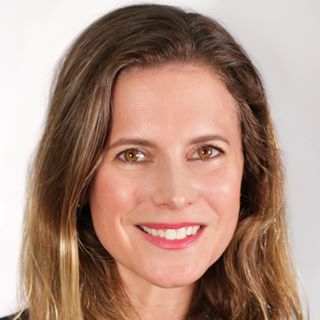

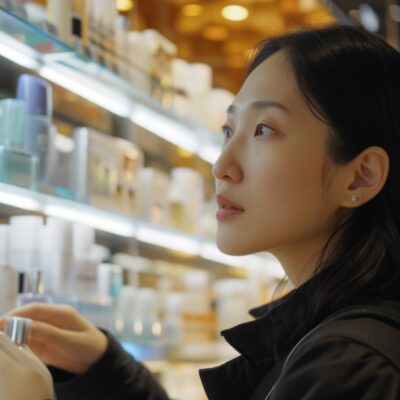

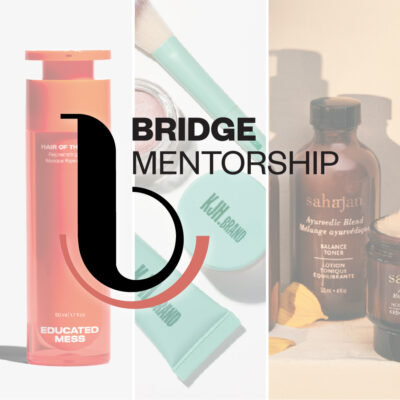
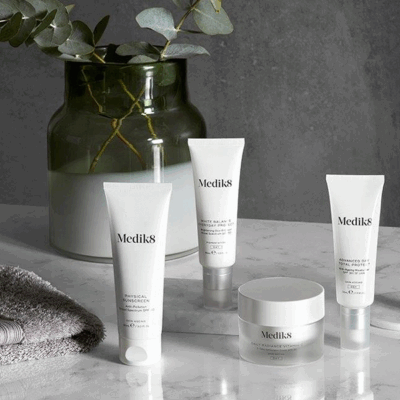
Leave a Reply
You must be logged in to post a comment.